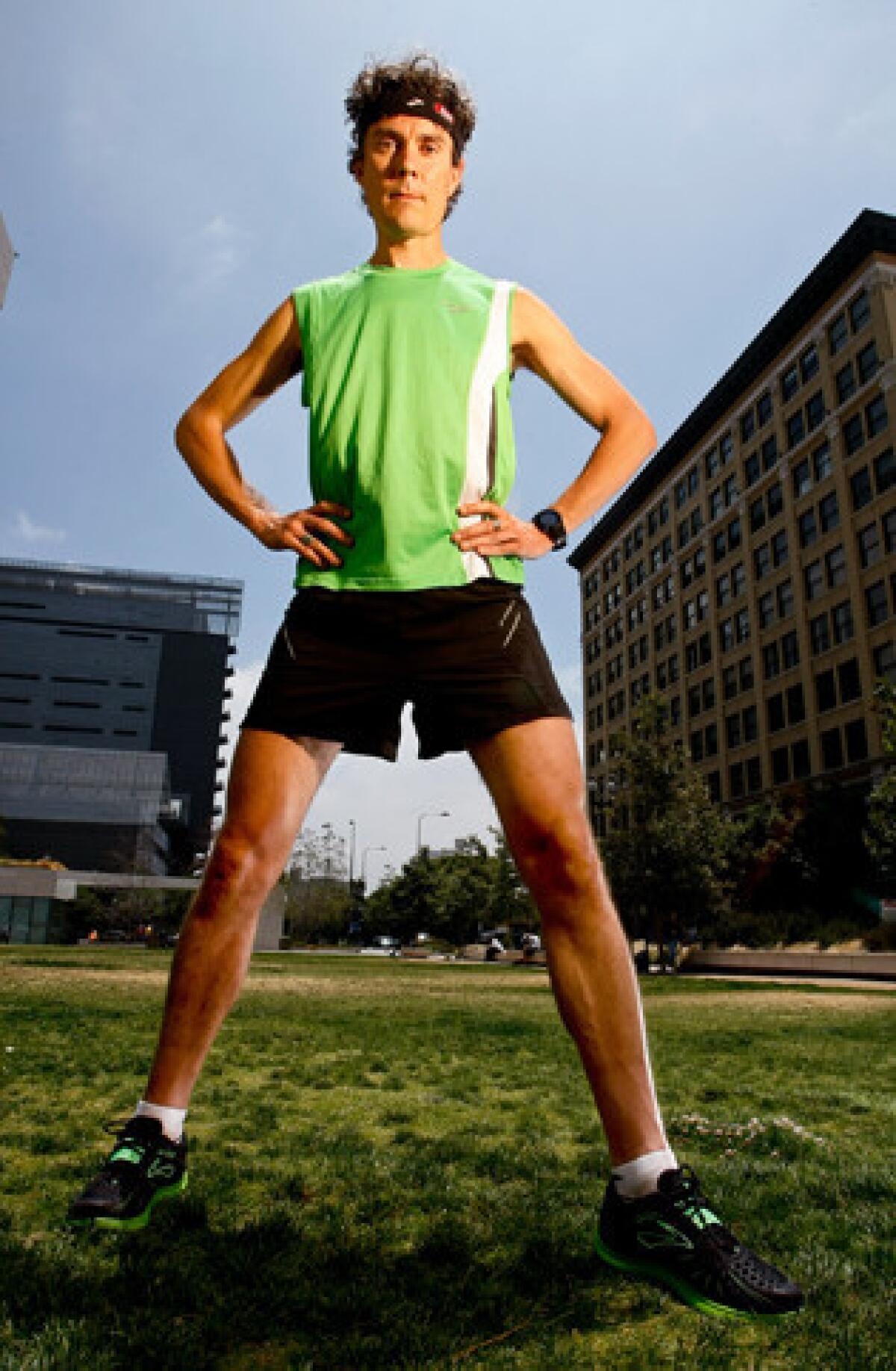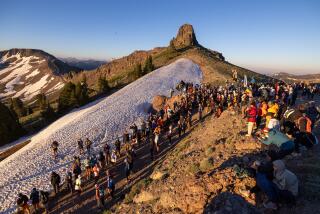Ultra-runner Scott Jurek on training and diet

Scott Jurek is a nice guy who exhibits none of the sanctimonious proselytizing that vegans sometimes do.
He’s also a guy who gave up a fast-food burger diet and runs what many consider to be obscenely long distances. How long? In 2010, he ran an astounding 165.7 miles (more than six marathons) in 24 hours to set a new U.S. record. His long list of running accomplishments has led to much praise, including Ultrarunning magazine three times naming him ultra-runner of the year. He also found time to write the new book “Eat & Run” with Steve Friedman (Houghton Mifflin).
How did you get into running, and do you feel like this is something you are genetically programmed to be good at?
I used to hate running and only did it to get in shape for cross-country ski season over the summer during my teen years. I don’t think my genes were that special. When I was 20, a buddy of mine decided on a whim to enter a 50-mile race, and he won it, so the next year I decided to do it as well. I ran my first marathon [26.2 miles] … and finished in 2:54. What I think made it stick was the social aspect of it. My friend put a fun spin on it, and I’ve met a lot of great people because of running; there is a pack mentality to it.
Wait. You ran your first marathon in under three hours? And you say your genes aren’t that special?
Well, I grew up in northern Minnesota, and during my childhood there was always lots of hard, physical work to do. Having a mother with MS meant we were always busy working, and if I was sitting down it was in a fishing boat or a deer blind. Maybe I had some good farm boy genes, but the beauty of ultra-running is that it is mainly a mental game. It’s a pure guts type of event, and that’s where I’ve been able to succeed. My best marathon time is 2:38, but I’ve beaten 2:15 marathoners in 100-mile races. Perhaps genes make a difference. I know I’m not made for shorter stuff. Also, I have scoliosis. I’m not this perfect specimen. I do get sick and run-down from time to time. I’ve learned to listen to my body.
What other type of training do you engage in to augment your running?
I do two to three days of strength training each week, both for the upper and lower body. I also do a lot of functional core strengthening. I think it’s important to focus on the supportive muscular system for injury prevention. I also advocate some stretching, but don’t think we need to be gymnasts. I’m a physiotherapist and know that lots of sitting leads to tightened hamstrings and hip flexors. I don’t do any other aerobic exercise other than running. I also do some yoga.
When and why did you become a vegan, and what effect did this have on your performance?
I became vegan in 1999, the same year I won the Western States 100-mile run, which I went on to win seven years in a row. (It’s like the Boston Marathon of 100-mile races.) Going vegan was a really tough decision mentally. I came from a meat-and-potatoes background and made the transition to vegetarian at the age of 25 for a year and then fully vegan after that.
It wasn’t a performance-motivated decision. It hit me when I began working in hospitals and learning about chronic disease and growing up with a mother with MS. I ate a lot of fast food in college, and the shift was one of those gradual things that was about health. It forced me to think carefully about what I was eating. I am sympathetic to ethical issues of eating meat, but don’t think people should be demonized. I’m probably going to vegan hell for all the animals I killed and ate in my youth.
With the traveling you do, is it hard to maintain your vegan diet?
It’s not that bad. It’s mostly about searching out ethnic foods, particularly when I’m in airports. You can still survive. In restaurants, a lot of times they have beans in the salad bar. Sometimes you have to look off the menu. It becomes a bit of a challenge, but usually Mexican and Asian are good choices. I’ve even eaten at a steak place in Texas before a race and able to get a good vegan meal there. Sometimes I travel with a protein powder or protein bars for those occasions that I can’t find something.
You have to have an adequate protein intake, but it’s really about caloric intake and getting enough variety. The amount of protein you need isn’t as much as people think.






